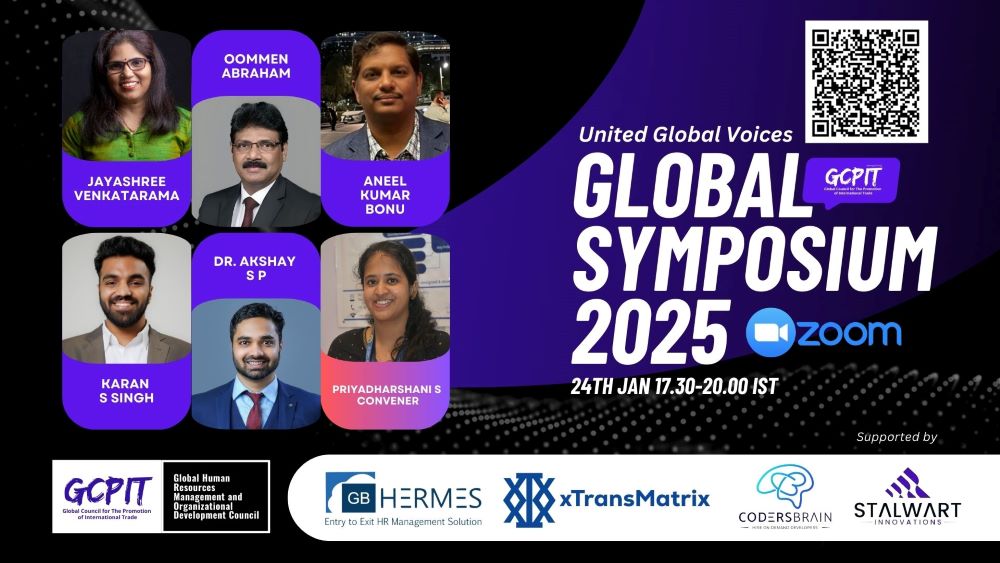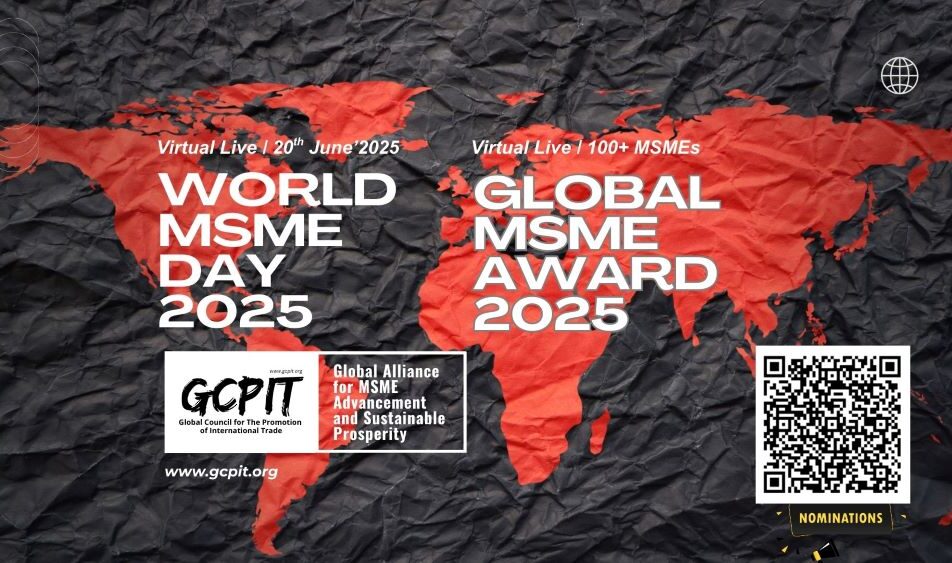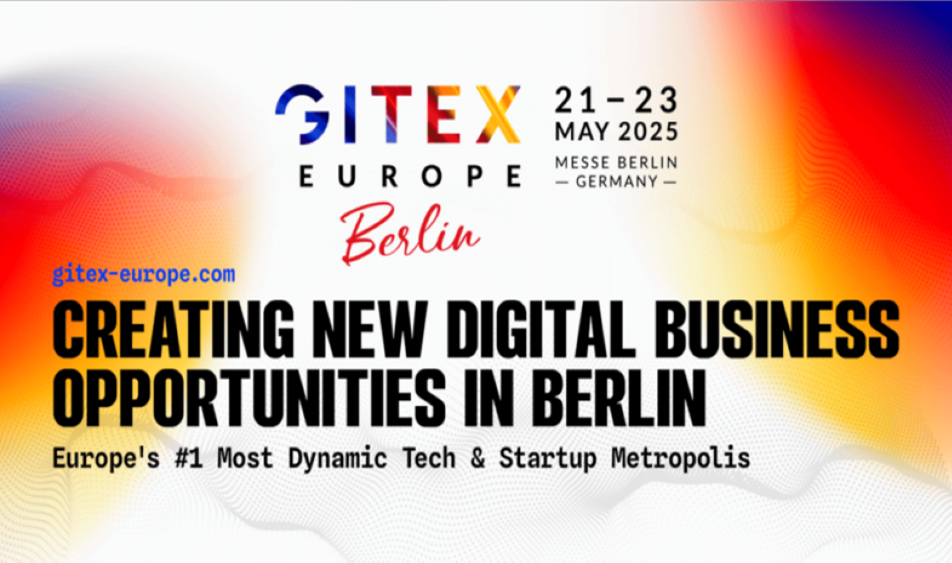
The Global Symposium 2025 is a flagship initiative by the Global Council for the Promotion of International Trade (GCPIT), designed to foster meaningful dialogue and collaboration across diverse industry verticals. This forward-looking platform hosts a series of webinars, uniting global thought leaders, industry experts, policymakers, and innovators to share insights, trends, and strategies shaping the future of business, technology, and sustainable development. By addressing critical topics spanning emerging technologies, trade, sustainability, and innovation, the symposium aims to capture valuable perspectives that can empower industries to navigate challenges and seize opportunities in an increasingly interconnected world. Through these dynamic virtual sessions, GCPIT reinforces its commitment to promoting international trade, fostering innovation, and building a more sustainable and inclusive global economy.
The future of work is here—and it’s evolving faster than ever! Join us at Global Symposium 2025 as we explore the transformative trends redefining Human Resources (HR) and Organizational Development (OD) in the digital era. This premier event brings together industry leaders, innovators, and visionaries to share insights and expertise on the critical challenges and opportunities shaping the modern workplace.
Event Highlights
- Employee Engagement & Motivation in the Digital Age
Jayashree Venkataraman, Co-Founder, NIYA Well-Being Solutions Pvt Ltd - HR Analytics & People Data
Oommen Abraham, Director & CEO, Global Best HR & Management Consulting Pvt Ltd - The Role of AI in Talent Acquisition
Aneel Kumar Bonu, Founder, TalentSpotify Pvt Ltd - Revolutionizing Talent Validation: The Role of AI in Modern HR Practices
Karan S. Singh, Co-Founder & Chief Marketing Officer, Crezam Creative Tech Pvt Ltd - Responsible AI Usage in Enterprise
Dr. Akshay SP, Partner & Head of AI, Xtransmatrix Consulting Pvt Ltd
This symposium will delve into how cutting-edge technologies and human-centric strategies can transform workplaces, boost employee engagement, and drive sustainable organizational growth.
Mark your calendars and be part of this exciting journey to reimagine the future of HR and OD. Let’s learn, connect, and grow together!
Stay tuned for more details and registration updates!
Global Human Resources Management and Organizational Development Council (GHRMODC) serves as a pivotal hub for HR professionals navigating the intricate landscape of Human Resources in today’s interconnected world. It fosters a dynamic community where HR leaders, researchers, and practitioners converge to exchange best practices. This collaborative environment tackles the complexities of cultural and legal nuances within international workforces, while simultaneously propelling innovation in organizational development strategies. The Council’s core mission is to empower HR professionals to cultivate robust and adaptable workforces that fuel the success of multinational organizations. By facilitating knowledge sharing and strategic development, the Council ultimately aims to contribute to a more thriving and sustainable global business ecosystem.









